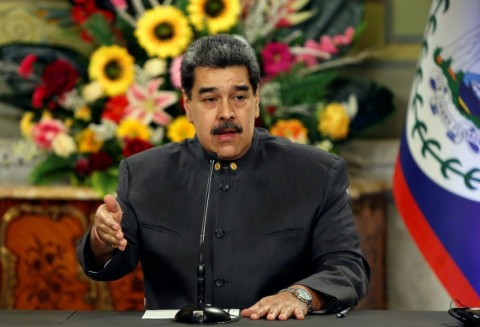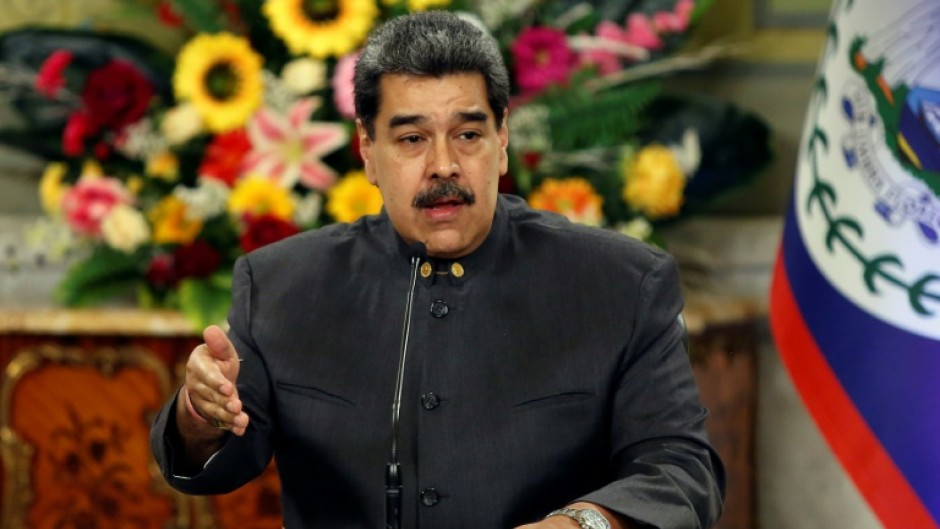
The government of Nicolas Maduro and the Venezuelan opposition are to restart political talks in Mexico on Saturday after a 15-month standoff, aiming to break a stalemate over what constitutes "free" elections.
A successful outcome could open the door to oil-rich Venezuela returning in force to global oil markets and the easing of a US oil embargo.
A political crisis has worsened there since Maduro declared himself victor of a contested 2018 election, which was widely seen as fraudulent.
Maduro and his opposition held several rounds of negotiations mediated by Norway in Mexico last year.
International efforts to resolve the Venezuelan crisis have gained strength since Russia's invasion of Ukraine and the pressure it has placed on global energy supplies.
Venezuela holds the world's largest oil reserves even as grinding poverty and an ongoing political crisis have led a UN-estimated seven million Venezuelans to flee the country in recent years.
Maduro's opposition is seeking free and fair presidential elections, next due in 2024, while Caracas wants the international community to recognize Maduro as the rightful president and to lift sanctions, particularly a US oil embargo.
Government negotiator Jorge Rodriguez told reporters after arriving in Mexico City that one of his objectives was to ink a "broad social agreement" with the opposition.
The government side said earlier that the pact was expected to establish a mechanism to restore access to funds frozen in the international financial system.
The money would be used to improve public health care and the power grid, according to a statement released by Rodriguez, who did not specify the amount or where the funds were blocked.
- 'Live in peace' -
The US government has signaled a willingness to lift restrictions on US energy companies' operations in Venezuela, including possibly offering a license to oil major Chevron to expand operations.
But the State Department insists that any easing would come only if the Maduro government moves in concrete steps toward holding free elections.
After the contested 2018 elections, almost 60 countries, including the United States, recognized opposition leader Juan Guaido as acting president.
Rodriguez, who also presides over the National Assembly, said before departure from a Caracas airbase that his team will defend "the right that we have... to live in peace."
For its part, the Unitary Platform opposition group demanded concrete steps to resolve "the humanitarian crisis, respect for human rights... and especially (guarantees for) free and observable elections."
Nevertheless, a source close to the negotiating process told AFP that the opposition has not reached consensus over the conditions it requires to take part in a 2024 vote.
Guaido's influence has waned in recent years, and he has lost key allies both at home and in the region, where many countries have since elected leftist presidents.
Colombian leader Gustavo Petro has become a new actor in the talks since taking the reins as his country's first leftist president in August.
He has worked to improve his country's relationship with Venezuela, resuming diplomatic ties for the first time since 2019, when then president Ivan Duque refused to recognize Maduro's election.

